Curfews and bans: How the world is trying to stop the Omicron outbreak
It’s the biggest threat to global health, causing chaos the world over. Here’s how countries are trying to halt the spread of Omicron.
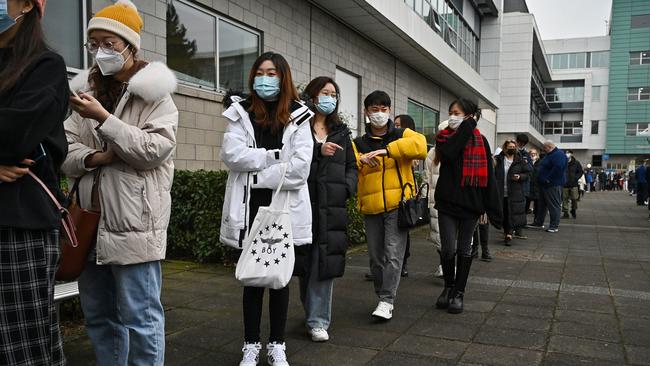
Coronavirus
Don't miss out on the headlines from Coronavirus. Followed categories will be added to My News.
Omicron is the biggest threat to global public health, the G7 group of economically developed democracies said this week, as the World Health Organisation said the variant has spread to 89 countries.
While scientists remain uncertain about how dangerous the highly mutated Omicron variant is, early data suggests it is more resistant to vaccines and is more transmissible than the Delta variant.
Many countries have decided to reintroduce travel restrictions and other containment measures since it was first detected in South Africa last month.
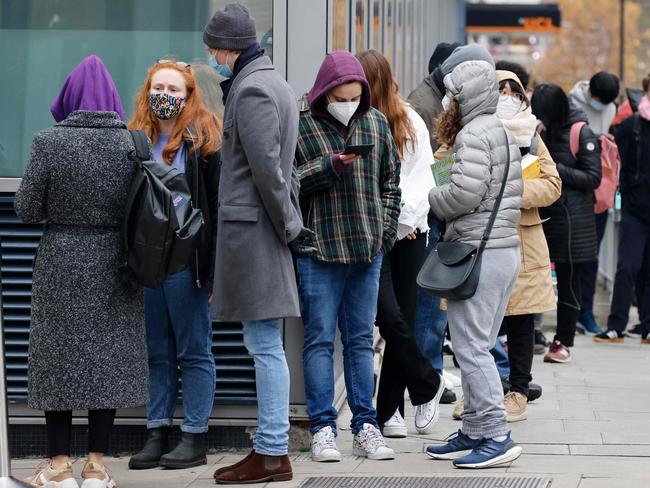
UK
According to the Mirror, British PM Boris Johnson will hear out plans which would see a return to restrictions which were in place earlier this year for a two-week “circuit breaker”.
Sources told The Times that ministers will be shown the plan “imminently”.
It comes as the UK recorded a record number of Covid cases for the third day in a row, with 93,045 confirmed infections in just 24 hours.
Under a new “Step 2” set of rules people would only be allowed to meet indoors for work purposes.
Pubs and restaurants would once again have to serve customers outdoors.
The “rule of six” would be reintroduced for outdoor meetings, while shielding would return to protect the most vulnerable.
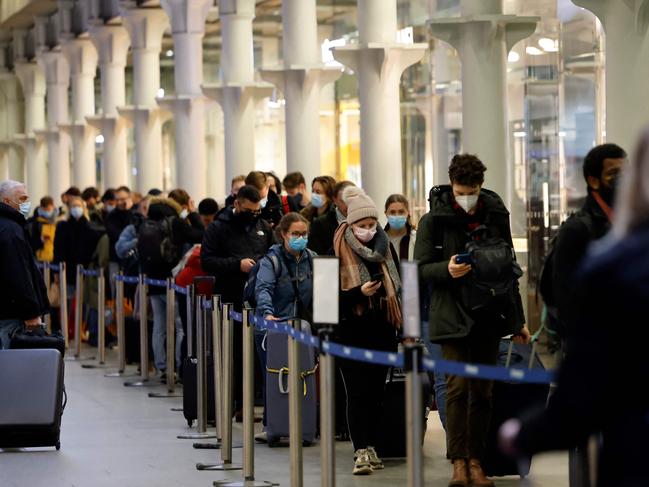
Insiders said the measures could come into place as soon as December 27 or 28, with plans underway to recall MPs next week.
Leaked minutes from the Scientific Advisory Group for Emergencies (Sage), seen by the BBC, reportedly said scientists had told ministers that tougher measures need to be brought in “very soon”.
The BBC reported that the advisers had recommended moving to restrictions seen in step one and two of the easing of lockdown restrictions in the spring. This included a ban on indoor mixing and indoor hospitality.
In Scotland people are being asked to limit socialising to three households over the Christmas season, with shops and hospitality venues expected to bring back social distancing measures and screens.
And in Ireland, bars and restaurants will have to close from 8:00pm from Sunday until January 30, prime minister Micheal Martin announced.
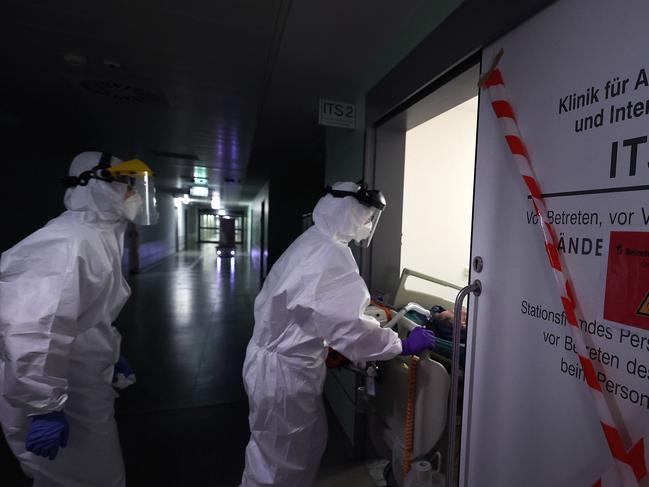
EUROPE
EU health agency the European Centre for Disease Prevention and Control (ECDC) has said stricter measures like mask-wearing, working from home and the prevention of crowds are essential to reduce the burden on healthcare systems, with vaccines and boosters alone taking too long to implement.
The Netherlands
The Dutch government announced new measures on Saturday to brake the spread of the Omicron coronavirus variant after its scientific advisers recommended tighter curbs, local media reported.
A panel of experts has called for a complete lockdown of businesses, with the exception of essential retailers such as supermarkets and pharmacies.
Dutch Prime Minister Mark Rutte announced earlier this week that primary schools would close earlier for the Christmas holidays because of the Omicron variant.
Other restrictions in place since November 28, such as the closure of non-essential shops, bars and restaurants between 5:00pm and 5:00am, were extended until January 14.
People are not allowed to entertain more than four visitors in their homes. The measures have led to a decline in infections of 21 per cent in the week from December 7-14, according to official health authority data.
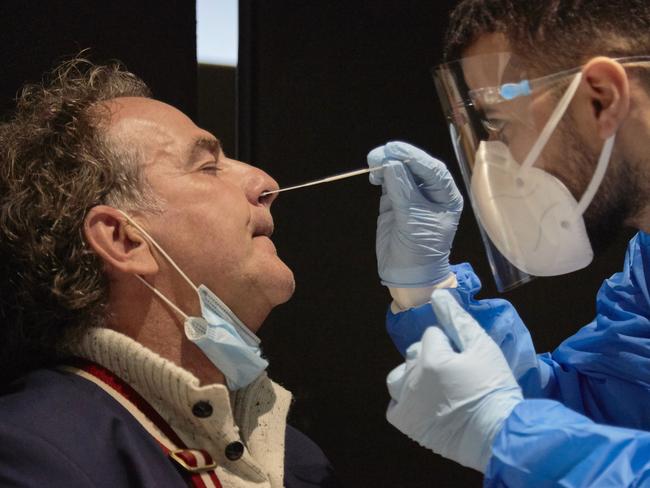
France
Paris announced on Saturday that it was cancelling its traditional New Year fireworks.
“With regard to the acceleration of the pandemic, and the risks related to the end-of-year festivities, authorities should impose significant restrictions,” France’s scientific panel said.
Paris municipal authorities announced “with regret that we will have to cancel all the festivities planned on the Champs Elysees on December 31.
Germany
On Friday, Germany designated France and Denmark as high risk zones, and said it would impose quarantine on unvaccinated travellers from its two neighbours, starting from Sunday.
Denmark
Denmark this week had the highest per capita new Covid infection rate in the EU, and said it would close cinemas, theatres and concert halls and restrict restaurant opening hours.
Denmark was one of the first European countries to open vaccination to all over-fives on November 26, though it is not compulsory.
Switzerland
Switzerland is also stepping up anti-Covid measures from Monday as the country battles an intense fifth wave of the virus.
It will allow only vaccinated people, or those who have recently recovered from a Covid-19 infection, access to indoor public areas, such as restaurants, bars, cultural and sports facilities.
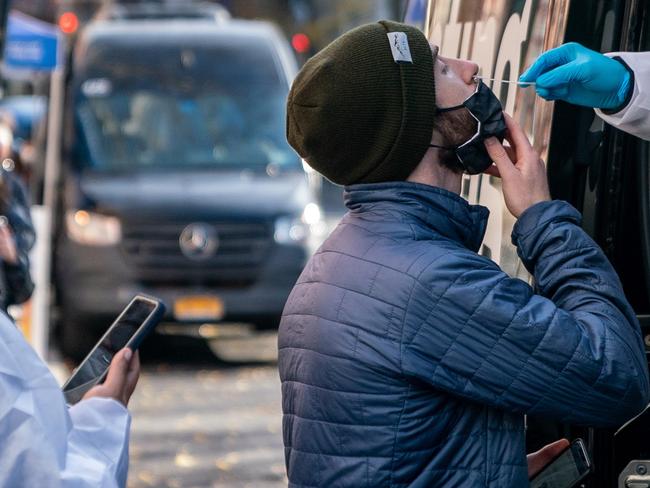
US
New York
As New York City recorded its highest number of infections since the start of the pandemic, medical experts expect infection rates to jump higher.
US President Joe Biden has urged Americans to get booster shots, as evidence suggests a third dose is critical in protecting against contracting the virus.
Mr Biden has so far resisted calling on states to implement tighter restrictions to slow the spread of Omicron, although states such as New York are adapting to the crisis.
New York City Mayor Bill De Blasio revealed details for citywide plans to tighten vaccine mandates at restaurants, bars and places of business later this month, while state Governor Kathy Hochul announced a statewide mask mandate for indoor public spaces last week.
California
California, America’s most populous state, will require masks to be worn in all indoor settings until January 15.
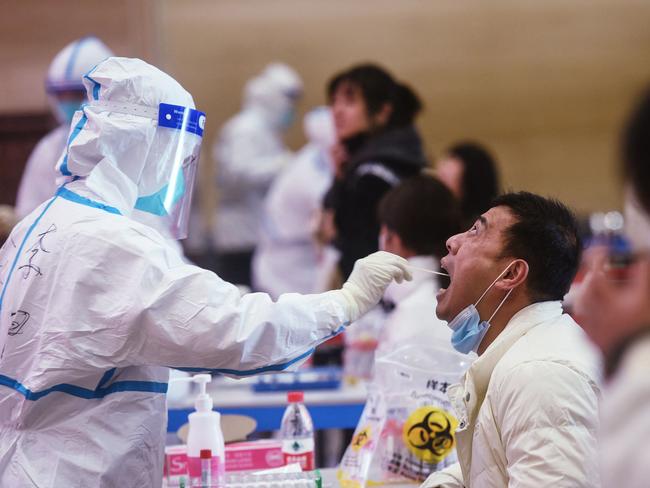
ASIA
China
The “zero tolerance” and ‘Fortress China’ approach with the Winter Olympics on the line will only increase, especially as studies show Chinese vaccines such as Sinovac are even less effective against Omicron than Western jabs.
Hong Kong
Hong Kong’s already strict travel rules have been tightened over fears of the Omicron variant, which Hong Kong recorded 14 cases of as of Friday.
If an airline brings in too many infected passengers on a particular route, it is banned from flying that route for two weeks.
Qatar Airways has been banned from Hong Kong five times since November 2020.
Singapore
Singapore will freeze all new vaccinated travel lanes (VTLs) and relaxations on social measures.
All incoming air travellers including returning residents and those transiting through Changi Airport will be subject to a tightened testing regime including a pre-departure test and an on-arrival PCR test.
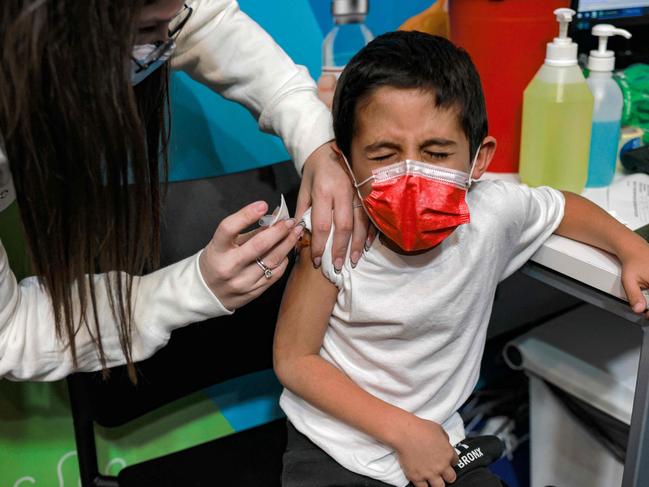
MIDDLE EAST
Israel
Israel banned the entry of all foreigners into the country, making it the first nation to shut its borders completely in response to the more contagious Omicron variant.
On Sunday, Israel’s health ministry recommended banning Israelis from travelling to the United States, and added several European countries to its Covid “red list”.
Politicians have already approved a ban on Israeli citizens and residents from travelling to France, Ireland, Norway, Spain, Finland, Sweden and the United Arab Emirates.
Britain and Denmark were already on the red list, as was most of Africa. In addition to the US, the health ministry recommended that Canada, Belgium, Italy, Germany, Hungary, Morocco, Portugal, Switzerland and Turkey be red-listed, guidance that is awaiting government approval.
Egypt
From 1 December Egypt stepped up measures to control the spread of Omicron and barred officials and students not vaccinated against Covid-19 from government offices and universities unless they show a negative PCR test.
Lebanon
Lebanese health authorities announced a night curfew for people who have not been vaccinated or are without a recent negative PCR test, starting on December 17.
For three weeks, people in those categories will not be allowed to leave their homes between 7pm and 6am.
Originally published as Curfews and bans: How the world is trying to stop the Omicron outbreak





